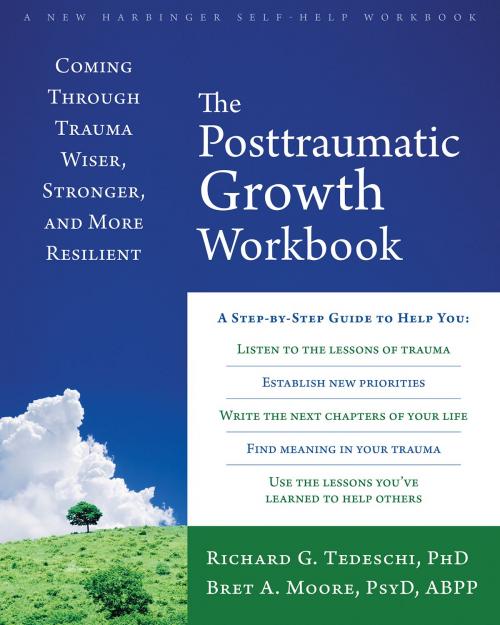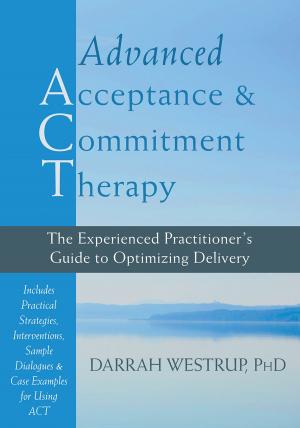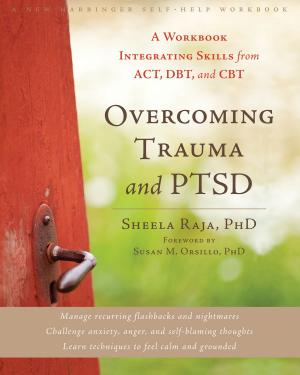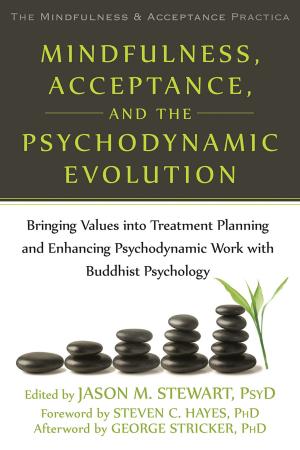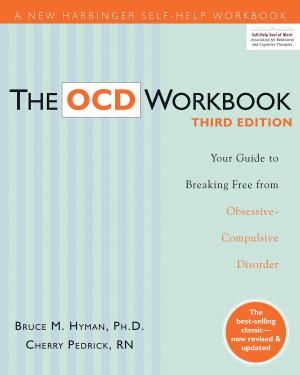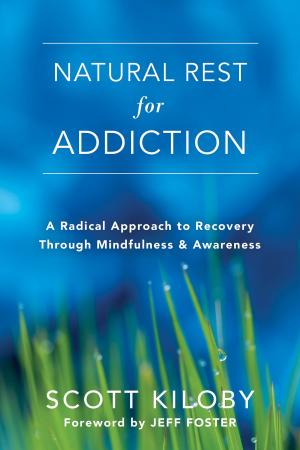The Posttraumatic Growth Workbook
Coming Through Trauma Wiser, Stronger, and More Resilient
Nonfiction, Health & Well Being, Psychology, Mental Illness, Self Help, Mental Health, Mood Disorders, Self Improvement| Author: | Richard G Tedeschi, PhD, Bret A Moore, PsyD, ABPP | ISBN: | 9781626254701 |
| Publisher: | New Harbinger Publications | Publication: | December 1, 2016 |
| Imprint: | New Harbinger Publications | Language: | English |
| Author: | Richard G Tedeschi, PhD, Bret A Moore, PsyD, ABPP |
| ISBN: | 9781626254701 |
| Publisher: | New Harbinger Publications |
| Publication: | December 1, 2016 |
| Imprint: | New Harbinger Publications |
| Language: | English |
People who experience trauma often struggle with its effects, but many men and women have found meaning in their traumatic event and now experience life differently. Written by two psychologists and experts on trauma psychology—including one of the key researchers on posttraumatic growth (PTG)—this unique, evidence-based, step-by-step workbook offers a new model for processing traumatic experiences in order to gain wisdom, strength, and resilience.
There is no denying the psychological and physical costs of trauma, but suffering a traumatic experience does not necessarily mean you’ll develop posttraumatic stress disorder (PTSD) and have to live with its debilitating long-term symptoms. While the process of recovering from trauma is difficult and painful, survivors also experience posttraumatic growth (PTG). And with the right approach to healing, the same challenges that create PTSD can also set the stage for a psychological rebirth.
The Posttraumatic Growth Workbook expands the focus on posttraumatic stress and its related difficulties to include the significant potential for positive growth in the aftermath of trauma. With this guide, you’ll learn more about traumatic experiences and their short- and long-term effects, discover where you are in your own process, explore vulnerability as an important aspect of post-traumatic strength, identify and develop other strengths for coping with—and growing beyond—your trauma, and successfully integrate your experience into your personal story.
Navigating the aftereffects of trauma is a difficult journey, but many people report having a new appreciation for life and feeling even more resilient after working through their traumatic event. Using this powerful, PTG-based workbook, you’ll find it’s possible to come out of your trauma even stronger and wiser.
People who experience trauma often struggle with its effects, but many men and women have found meaning in their traumatic event and now experience life differently. Written by two psychologists and experts on trauma psychology—including one of the key researchers on posttraumatic growth (PTG)—this unique, evidence-based, step-by-step workbook offers a new model for processing traumatic experiences in order to gain wisdom, strength, and resilience.
There is no denying the psychological and physical costs of trauma, but suffering a traumatic experience does not necessarily mean you’ll develop posttraumatic stress disorder (PTSD) and have to live with its debilitating long-term symptoms. While the process of recovering from trauma is difficult and painful, survivors also experience posttraumatic growth (PTG). And with the right approach to healing, the same challenges that create PTSD can also set the stage for a psychological rebirth.
The Posttraumatic Growth Workbook expands the focus on posttraumatic stress and its related difficulties to include the significant potential for positive growth in the aftermath of trauma. With this guide, you’ll learn more about traumatic experiences and their short- and long-term effects, discover where you are in your own process, explore vulnerability as an important aspect of post-traumatic strength, identify and develop other strengths for coping with—and growing beyond—your trauma, and successfully integrate your experience into your personal story.
Navigating the aftereffects of trauma is a difficult journey, but many people report having a new appreciation for life and feeling even more resilient after working through their traumatic event. Using this powerful, PTG-based workbook, you’ll find it’s possible to come out of your trauma even stronger and wiser.
